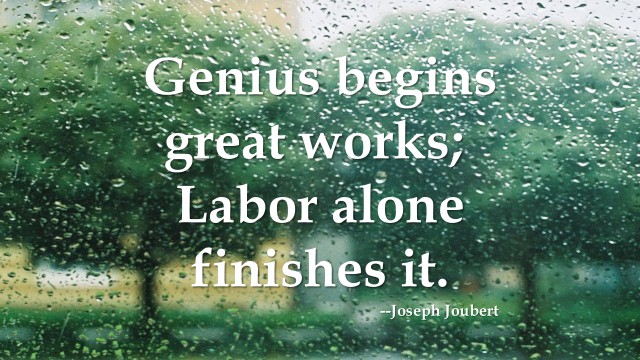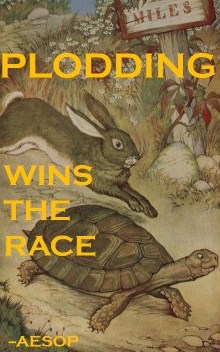Second Nature
Rivaling the crisp new leaves flapping in the spring breeze, their noisy excuses were abundant.

“Revisions take so long and winter was so short, and that’s my best time to write.”
“I can’t focus on writing with a stuffy head. The pollen was the worst!“
“All that rain made me blue. . .”
“And now it’s too pretty outside to stay in and write!”
Ah, springtime’s seasonal allergy of excuses that clogs ideas in your head or simply drains them away. Too bad there isn’t a pill for that. . .
Does the season really affect your writing’s progress? With any goal, aren’t some tasks more time consuming than others? And can you prioritize and balance according to the changing weather of your schedule and keep a commitment to consistent writing?
Khaled Hosseini, author of the bestselling The Kite Runner and upcoming As The Mountains Echoed, said “There is a romantic notion to writing a novel, especially when you are starting it. (When) you’re about fifty pages into it, that romance wears off, and then you’re left with a very stark reality of having to write the rest of this thing…what it takes at that point is discipline. You have to punch in and punch out every day regardless of whether it’s going badly.”
 Use what you are given in the moment to make your best plans. One client accepted the temptation of a warm, sunny day to take a Frisbee and a notepad to the park for energetic fun and people-watching writing motivation. Another writer used the weekend’s chilly downpour as inspiration to get into the mood of her short story’s Alaskan autumn setting. Across town, I edited a client’s books and wrote on my projects to the shower’s centering patter.
Use what you are given in the moment to make your best plans. One client accepted the temptation of a warm, sunny day to take a Frisbee and a notepad to the park for energetic fun and people-watching writing motivation. Another writer used the weekend’s chilly downpour as inspiration to get into the mood of her short story’s Alaskan autumn setting. Across town, I edited a client’s books and wrote on my projects to the shower’s centering patter.
Nature has been a major tease this springtime with wildly shifting weather and smatterings of blossoms instead of one glorious show. Though somewhat unusual, we must remember that’s just nature.
A good writing practice goes with the flow as the successful writer perseveres beyond discouragement, difficulty, and distraction with dedicated focus, action and creativity. Like breathing, the writer who persistently progresses has turned practice into second nature.